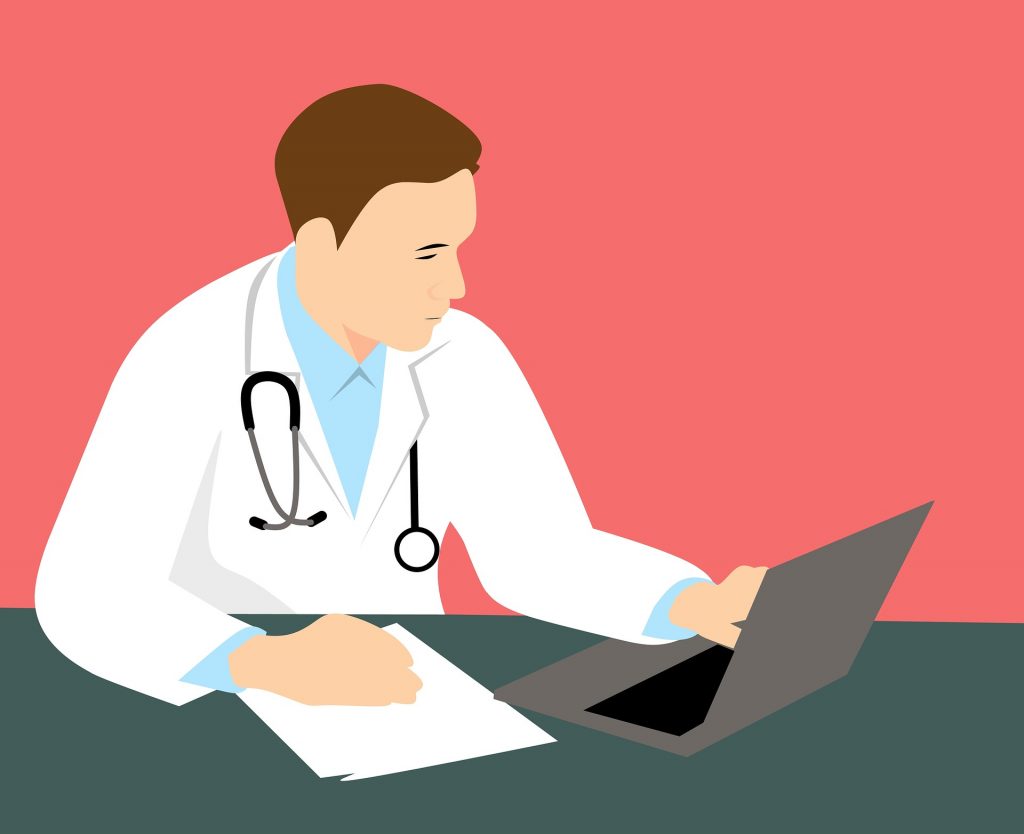Healthcare Cybersecurity: Why It Is So Important
Depending on which industry you’re in, the idea of cybersecurity can take on different meanings. After all, each sector faces a minefield of regulations, stakeholders, and compliance issues.
But when it comes to healthcare, the stakes can be life and death.
In recent years, bad actors are targeting vulnerable healthcare networks more frequently to access the trove of valuable personal data maintained within systems. In 2020, 70% of hospitals in one nationwide survey reported being the victim of a “serious security instance,” according to the Brookings Institute.
Healthcare organizations may face the added burden of patient privacy protections, requiring transparency when data security breaches occur. But if you are a leader of a healthcare organization or cybersecurity expert within the industry, know that there are many resources to help you stay ahead of the curve.
For example, the American Health Association offers online cybersecurity and risk advisory services that may help you wrap your head around the complex threats facing your organization. And as a regional thought leader in the space, PGH Networks can help your team build a battle readiness strategy that will match the day’s challenges.
Does Healthcare Need Better Cybersecurity?

The battlefield is evolving. Healthcare cybersecurity must adapt to stay in the fight.
Healthcare systems have been the No. 1 target for cybercriminals for the past five years, and the number of threats has only increased since the beginning of the coronavirus pandemic.
According to the HIPAA Journal, “In the first six months of 2021, cryptojacking attacks increased by 23%, encrypted threats rose by 26%, IoT attacks rose by 59%, and there was a 151% increase in ransomware attacks compared to the corresponding period last year.”
The reasons behind this trend are as nefarious as the cyber bad guys themselves.
Healthcare records are more valuable on the dark web than other personal data due to their trove of private, identifying information. As connected equipment becomes more available to healthcare workers, hackers have attacked IoT systems and vendors to exploit vulnerabilities outside of the control of organizations’ cybersecurity experts. If the threat of stolen patient records seems frightening, the idea of hijacked ‘smart’ life support systems seems especially insidious. And while healthcare workers across the globe sacrificed to fight the pandemic, bad actors have taken advantage of strained hospital staff and resources by targeting their systems and personnel to gain personal profit.
Healthcare Cybersecurity Regulations
When it comes to cybersecurity, every industry has its own unique set of complexities. Each organization’s relationship with technology is special, and the rules and regulations for specific sectors vary widely.
As one of the most regulated sectors in the United States, the healthcare industry has unique challenges. Mainly applicable to those tasked with protecting healthcare records: patient privacy.
The Health Insurance Portability and Accountability Act (HIPAA) has specific rules governing patient privacy, security, and breach notification managed by the U.S. Department of Health and Human Services.
For detailed information on this topic, check out the Healthcare Information and Management Systems Society website.
Health Insurance Portability and Accountability Act (HIPAA)
HIPAA is a federal law enacted in 1996 to protect patients from releasing sensitive health information without explicit consent or knowledge. When it comes to data breaches and other types of cybersecurity attacks, this legislation presents unique challenges — and protections — to healthcare service providers, insurers, clearinghouses, and associated parties.
HIPAA mandates that the breach be disclosed to those affected and the federal government when a data breach occurs. But in recent years, delayed compliance within the industry has meant federal regulators are becoming more focused on the affected healthcare providers when their systems are compromised.
It is now more critical than ever that your team knows what is at stake should your patients’ data be stolen and how to prevent those inevitable attacks from being successful in the first place.
General Data Protection Regulation (GDPR)
While HIPAA governs companies based in the United States, those found in Europe or who have interests within the European Union must comply with the General Data Protection Regulation (GDPR).
The GDPR is the European Union’s data privacy law enacted in 2018. It is considered the most rigid privacy security law globally and has influenced subsequent legislation in California, Chile, and Japan.
Healthcare professionals who deal with clients or have a web presence within the European Union should understand these laws and how they may affect their data security efforts. The E.U. has said that violators of the law could face steep penalties that range up to tens of millions of Euros. And even U.S.-based organizations may fall under the law, as the E.U. has said it would fight to prosecute violators anywhere if they collect the data of E.U. citizens.
Click here for more information on the GDPR.
Educate Your Employees

It’s important to make cybersecurity a priority across your company. Here, internal communications will play a crucial role. By providing education on cybersecurity best practices and reinforcing digital literacy, your entire workforce can act as a means of defense against cybercriminals.
First, it’s essential to be up to date on the latest trends. The Center for Internet Security (CIS) is a nonprofit agency that sets benchmarks for I.T. and data security best practices. This group has created a list of goals that help break down data security into three buckets: Basic, Foundational, and Organizational. Learn more about these three factors here with our resources on Cybersecurity Basics,
This approach will help you assess and inventory your hardware, software, and cloud-based assets to build a fully integrated training and response regimen.
In the case of cybersecurity, the best defense can be a strong offense. By being proactive about cybersecurity, your cyber team can take the fight to the bad guys.
When it comes to education, engage your workforce using the same means of communication used for other initiatives — email, internal intranet systems, newsletters, and mobile. Offer focused content detailing the various threats — e.g., phishing and spear-phishing emails, texts, and SMS — and explain how ransomware works. Offer examples of each type of malicious campaign and show how they can identify clear red flags. You can also test your workforce with compliance drills that send fake phishing emails throughout the company.
Specialized training for your C-suite and leadership will ensure buy-in from the top-down and thwart whale-phishing campaigns. Organizational leaders are targeted explicitly by whale-phishing campaigns to gain high-level entry into systems. And make sure your data security team is recognizable and readily available throughout the workforce.
But even the most dedicated workforce can’t fight this threat alone. It’s crucial to enable your staff with the right tools to get the job done.
A recent Forbes article sums up the perfect approach:
“Compliance and security teams cannot rise to the challenge with manual labor alone; they need the right technology in place — in addition to a tactical strategy — and that means analytics powered by automation and artificial intelligence.”
Work with a Reliable I.T. Security Team
If the idea of warding off an international gang of cybercriminals sounds daunting, don’t worry!
The seasoned professionals at PGH Networks will walk your team through current best practices and the latest technological advances. Our white-hat techno-sleuths can get inside the mind of the cyber bad guys to tease out vulnerabilities in your system and upgrade your defenses to ensure they withstand even the most sophisticated attacks.
Schedule an appointment today — and enjoy lunch with us! We’ll walk you through the latest trends in cyber security and explain our approach to active threat monitoring.

